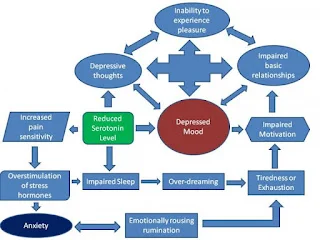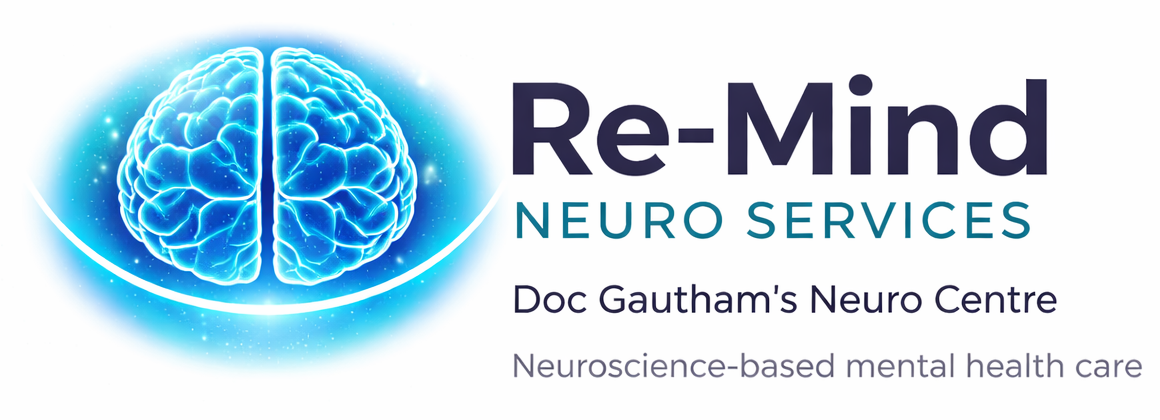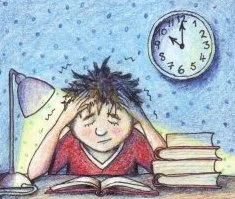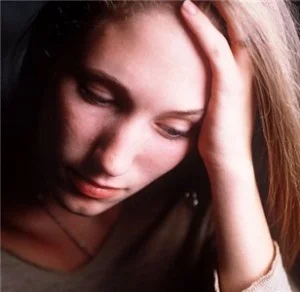If you’re feeling down because of a specific event, such as losing a job or the breakup of a relationship, it could be normal and temporary sadness. If you feel sad, despairing, feel like crying / cry, or feel “empty” every day for more than two weeks and it’s interfering with other aspects of your life, it may be clinical depression.
Depression is curable. Here you can find some answers to questions about clinical depression and its treatment.
Are you Depressed? Or just sad or unhappy?
Read “The D Word” by Shubhrata Prakash, a definitive lay primer on depression.
What causes depression?
Depression is caused by an imbalance of chemicals (neuro-transmitters) in the brain.
The Cycle of Depression:

Some factors may trigger the chemical imbalance that leads to clinical depression:
- specific, distressing life events,
- psychological factors, like a negative or pessimistic view of life.
- Life events, both positive and negative can trigger off depression. Examples of these are – losing a job, separation from a loved one, financial problems, marriage and family quarrels.
- Non events can also cause depression – boredom at home or work, unemployment and retirement, losing one’s purpose in life, loneliness.
- Heredity and personality make up can be the basic reason for the tendency to develop depression.
- Physical factors such as changes or imbalances in body chemicals, illness, taking alcohol or drugs, certain medicines, or a poor diet specially in old age can cause depression.
There may also be a genetic link since people with a family history of depression are more likely to experience it.
I feel unhappy. Am I depressed?
Everyone experiences unhappiness at some point in their life. Many people feel depressed temporarily when things don’t go as expected. Problems and misfortunes are a part of life. Failure in endeavors commonly result in feelings of self-blame and worthlessness which are temporary. Personal losses cause feelings of sadness, disappointment and emptiness. All such feelings are normal, and usually pass after a short time. This is not the case with depressive illness.
How is depression treated?
Depression is the most treatable of all mental disorders. Medication is often used in treatment of depression, particularly. It is useful in even mild or moderate cases to improve depression so that changes in life style can take place but must always be used under the supervision of a Psychiatrist. Many people who are severely depressed wait too long to seek treatment or they may not seek treatment at all. They may not realize that they have a treatable illness, or they may be concerned about being stigmatized if they accept that they have depression or seek treatment for it. Medicines can help the person recover within 2 weeks. Cognitive Therapy, and support from family, and friends can also make a big difference.
How long do I need to take treatment for depression?
In general, it is recommended that people stay on an antidepressant at least one year to experience the full benefits. Beyond that, when — and whether — you should to go off depression medication is a choice that requires serious thought. Depression can relapse after stopping treatment if the person encounters the triggers again or if it is part of a Bipolar Affective Disorder. It may be a wise choice to continue the antidepressants in a maintanence dose if you do not want to take the risk of a relapse disrupting your life, family, and career.
You may be depressed if you have:
- been feeling down, depressed, or hopeless most of the day
- less interest in or get less pleasure from things you once enjoyed
- feelings of sadness or unhappiness
- irritability or frustration, even over small matters
- agitation or restlessness
- trouble sleeping or have been sleeping more than usual
- been having difficulty concentrating or making decisions, thinking process slowing down, being easily distracted or difficulty in concentrating, suddenly trouble remembering things or problems in making decisions — as minor as what to wear in the morning or as major as problem-solving at work
- feelings of worthlessness, helplessness, hopelessness, or guilt.
- feelings of self-loathing, being unable to “turn off” self- criticism, being preoccupied with failures, feeling responsible for events that are out of your control.
- unexplained aches and pains, e.g. back pain even though you haven’t strained your back, chronic headaches and stomachaches, unexplained chest pain or achy legs and arms
- loss of energy, feeling very tired, daily activities such as getting dressed and cleaning the house can seem overwhelming and exhausting.
- loss of interest or pleasure in taking part in daily activities,
- overwhelming feelings of sadness or grief,
- unreasonable feelings of guilt
- avoiding other people,
- sleep disturbances (excessive or reduced sleep),
- disturbances in appetite (eating more or less than usual),
- decreased sex drive,
- thoughts of death or suicide.
- slowed thinking, speaking or body movements
- fatigue, tiredness and loss of energy
- fixation on past failures or self blame when things aren’t going right
- crying spells for no apparent reason
- unexplained physical problems, such as back pain or headaches
What is Bipolar Affective Disorder (BPAD)?
States of exaggerated happiness or elation are called mania. The occurrence of both depression and mania at different times is called bipolar affective disorder, while repeated experiences of depression alone is termed unipolar affective disorder.
See also – BPAD
What can friends and family do?
Some people who are depressed keep to themselves, or may react strongly to the things that others say or do. They can be be difficult to be with. It is important that the care givers let them know that they care and that it is okay to talk about their feelings and thoughts. Listening and offering support is more helpful that trying to contradict them or talk them out of it. It is important to be patient and non-judgmental.
Does depressive illness follow a pattern?
When people suffer from clinical depression, they are more likely to suffer from depression again. Some people may experience seasonal cycles of depression, called Seasonal Affective Disorder (SAD).
How long does depression last?
Depressed feelings that are experienced after a serious loss or disappointment usually last for a short or a long time. How long they last depends on the person, the severity of the loss, and the support available to help the person to cope with it.
However, clinical depressionmay last for longer periods which may be anything from a few weeks to a few months.
Can you give me some tips to handle my depression?


